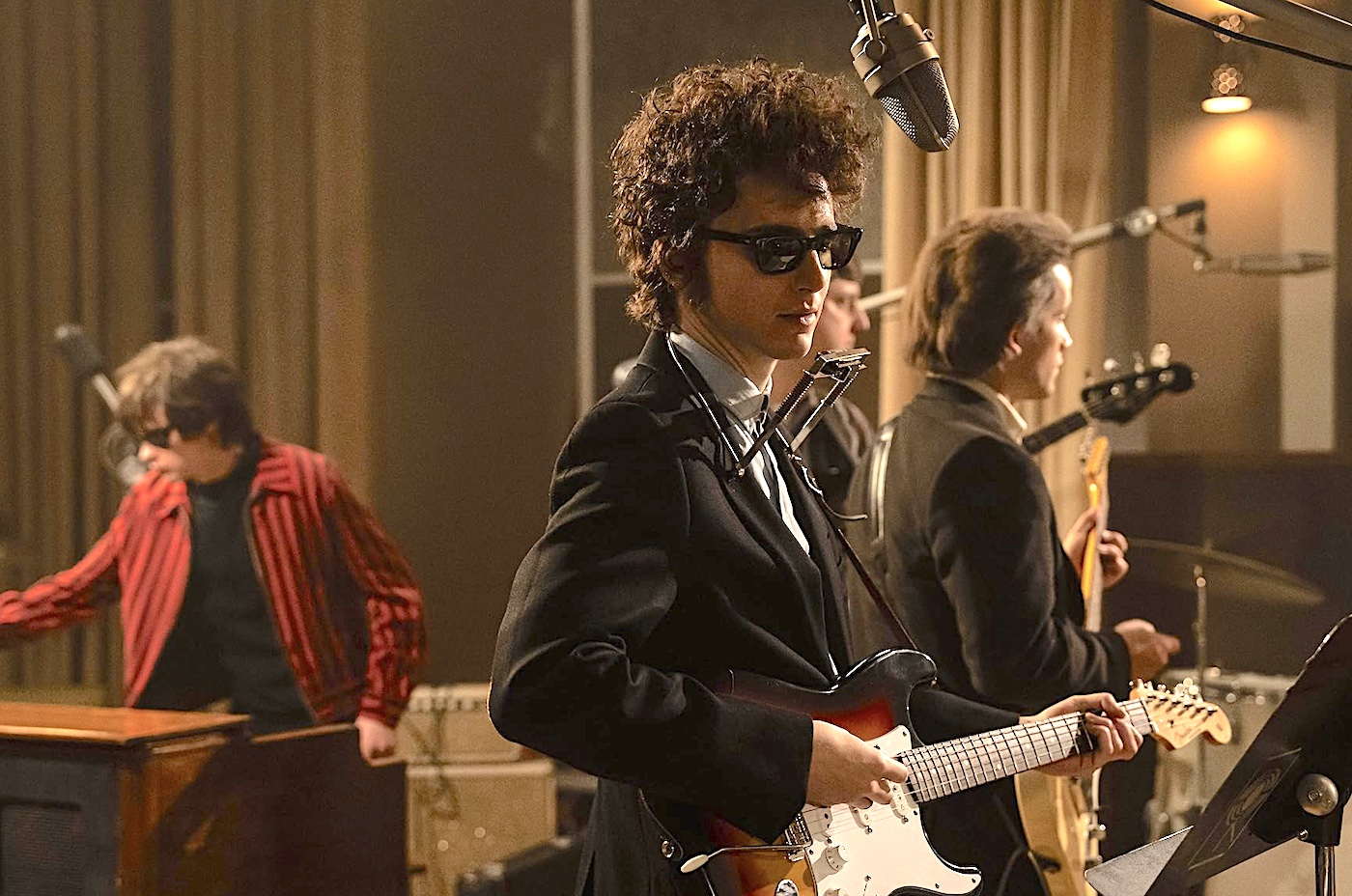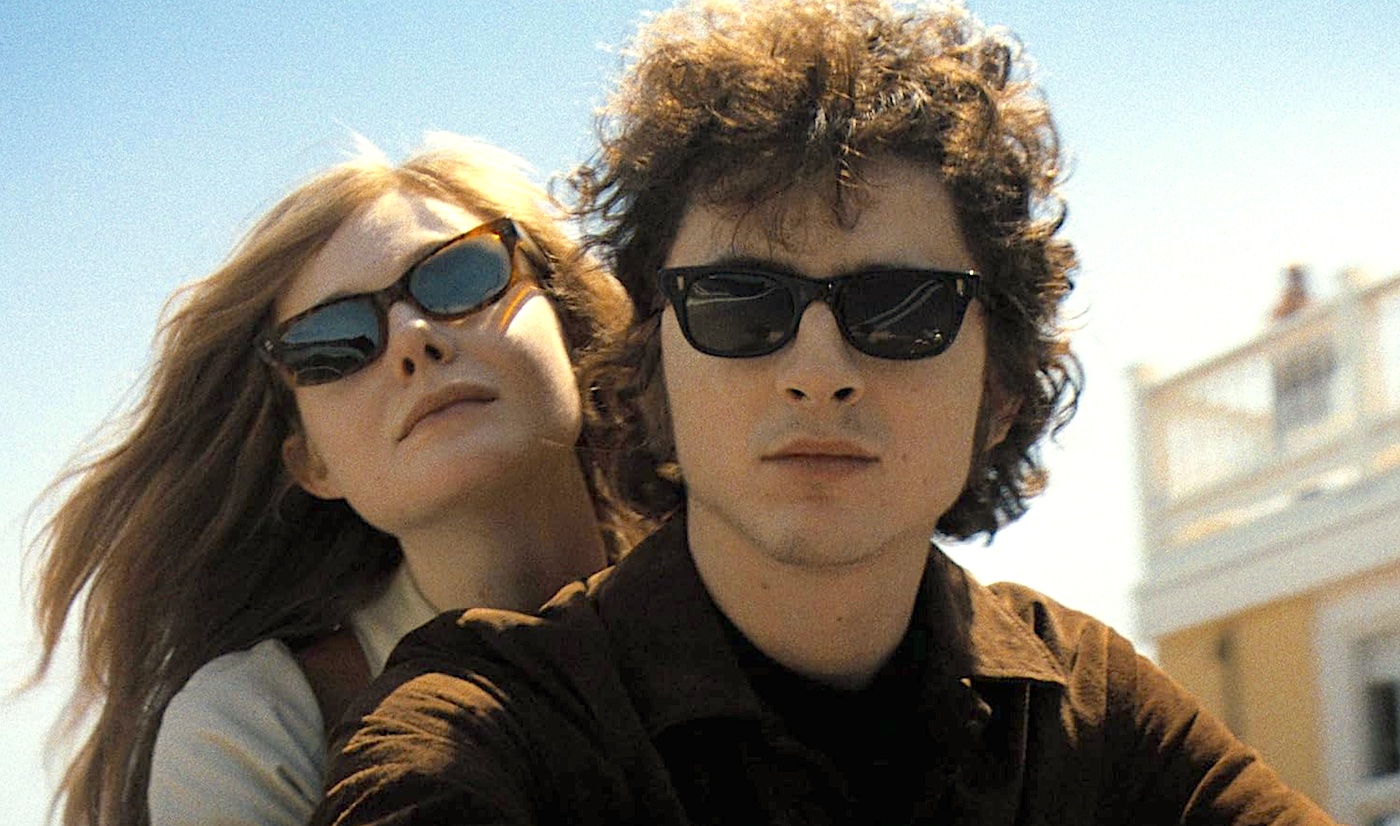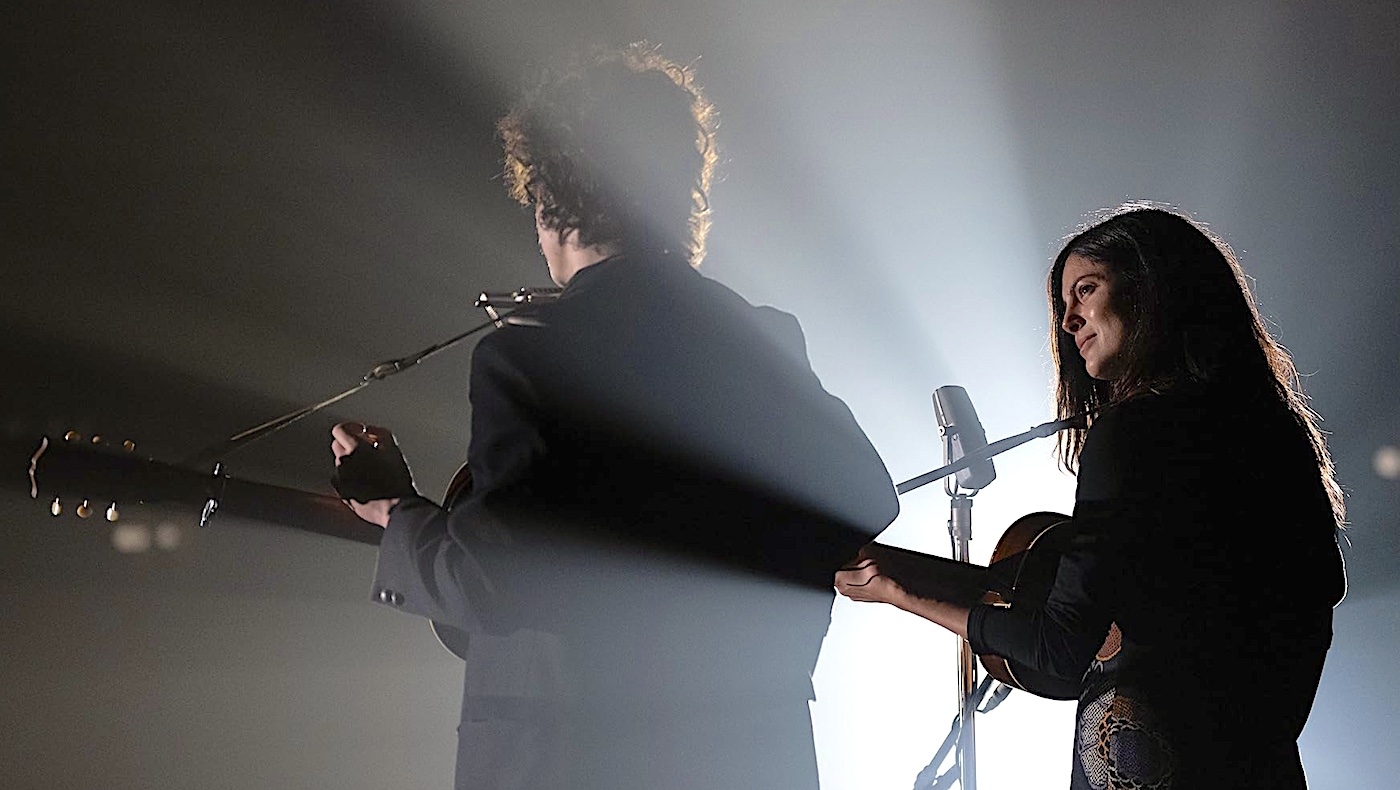Being unknowable has been almost as much of a preoccupation for the erstwhile Robert Zimmerman as writing songs. Previously on film he has played the role of Alias in Sam Peckinpah’s Pat Garrett and Billy the Kid, having first presented himself to the world under the alias of “Bob Dylan”.
He was played by six different actors in Todd Haynes’s aptly named I’m Not There, and appeared as Jack Fate in the equally apposite Masked and Anonymous. He’s like TS Eliot’s Macavity, the Mystery Cat – “it’s useless to investigate – Macavity’s not there!”
However, Dylan has been closely involved with James Mangold’s A Complete Unknown, reading the script, suggesting changes and taking an executive producer credit. Thanks to a bravura performance by Timothée Chalamet as the enigmatic Bard of Minnesota, it amounts to a compellingly plausible authorised account of Dylan’s early-Sixties breakthrough years. Which isn’t to say that it’s all true. Events and characters have been shuffled around to make for a more coherent narrative, and keen Dylan-watchers will be able to point to various moments where the film-makers have allowed themselves a little creative latitude.
Which isn’t to say that it’s all true. Events and characters have been shuffled around to make for a more coherent narrative, and keen Dylan-watchers will be able to point to various moments where the film-makers have allowed themselves a little creative latitude.
A particularly noteworthy one occurs when Dylan makes his apocalyptic appearance at the 1965 Newport Folk Festival and shocks the folkie audience by playing his new electric music, including the epochal “Like a Rolling Stone”. “Judas!” shouts a woman in the crowd. “I don’t believe you,” he retorts (pictured above, Bob goes electric). But of course this exchange really took place at Manchester Free Trade Hall the following year (when Bob added the observation that “you’re a liar!”), even if for several decades it was supposed to have occurred at the Royal Albert Hall. Still, it fits the feverish atmosphere of the Newport event neatly enough.
Sensational as the advent of Electric Bob was deemed to be, the film also makes clear that Acoustic Bob was equally revolutionary. This is evident from the start, when Dylan blows into New York City in 1961, and goes to visit his idol Woody Guthrie (Scoot McNairy), then in hospital dying a horrible death from Huntington’s disease. Also in attendance is the godfather of American folk music, Pete Seeger (a paternal-looking Edward Norton). Bob’s performance of a work-in-progress version of “Girl From the North Country” is enough to persuade the veterans that the kid has really got something. Bob grabs the baton from the two old-timers, and suddenly there’s revolution in the air. We see Dylan advancing at amazing speed both personally and artistically, as the Cuban missile crisis and terror of nuclear war send New Yorkers scuttling for cover and the Vietnam war is cranking up. But it’s all fuel for Bob, who’s blithely turning out masterpieces like “Masters of War” and “A Hard Rain’s a-Gonna Fall”, not to mention more introspective classics such as “Don’t Think Twice, It’s All Right” or “It’s All Over Now, Baby Blue”. By the time he gets to the visionary versifying of “Mr Tambourine Man”, it’s clear there’s been a kind of quantum shift in the musical universe.
Bob grabs the baton from the two old-timers, and suddenly there’s revolution in the air. We see Dylan advancing at amazing speed both personally and artistically, as the Cuban missile crisis and terror of nuclear war send New Yorkers scuttling for cover and the Vietnam war is cranking up. But it’s all fuel for Bob, who’s blithely turning out masterpieces like “Masters of War” and “A Hard Rain’s a-Gonna Fall”, not to mention more introspective classics such as “Don’t Think Twice, It’s All Right” or “It’s All Over Now, Baby Blue”. By the time he gets to the visionary versifying of “Mr Tambourine Man”, it’s clear there’s been a kind of quantum shift in the musical universe.
Bob’s personal life is as mercurial and quick-changing as his music. There’s a beautifully touching performance from Elle Fanning as Bob’s first New York girlfriend Sylvie Russo (a pseudonym for the real-life Suze Rotolo), an accomplished artist in her own right. She gives him shelter from the storm, but inevitably falls foul of Dylan’s relentless ambition and continual self-reinventions (pictured above, Fanning and Chalamet).
For a while Sylvie manages to keep her emotions in check while he starts up a professional and personal affair with the Queen of Folk, Joan Baez (Monica Barbaro), but it’s an impossible task. It becomes impossible for Baez too, since Dylan’s compulsive evasiveness and perversity make it impossible for anybody to play by any rules but his. Even when they’re supposed to be duetting live onstage (pictured below), Dylan suddenly decides he’s not going to take part. “You’re kind of an asshole, Bob,” Joan tells him bluntly. Other standouts in the cast include Dan Fogler as Bob’s hustling, bullying manager Albert Grossman, who could have done with a bit more screen time, and Boyd Holbrook’s Johnny Cash, who shares Dylan’s anarchic, who-dares-wins attitude.
Other standouts in the cast include Dan Fogler as Bob’s hustling, bullying manager Albert Grossman, who could have done with a bit more screen time, and Boyd Holbrook’s Johnny Cash, who shares Dylan’s anarchic, who-dares-wins attitude.
As for Chalamet, his performance is kind of a marvel. The arrival of Covid meant that the film’s production was delayed for several years, during which time he learned to play guitar well enough to perform Dylan’s songs live. More amazingly, he has managed to find a Dylan voice which plausibly evokes the real thing without tipping into caricature (and Dylan’s voice, "like sand and glue" as David Bowie put it, has been a gift to satirists for decades). Likewise, he doesn’t really look much like Dylan, but his manner and idiosyncrasies (and clothes and hair and sunglasses) all conspire to make the fiction feel true. All concerned might feel justifiably proud of themselves.















Add comment